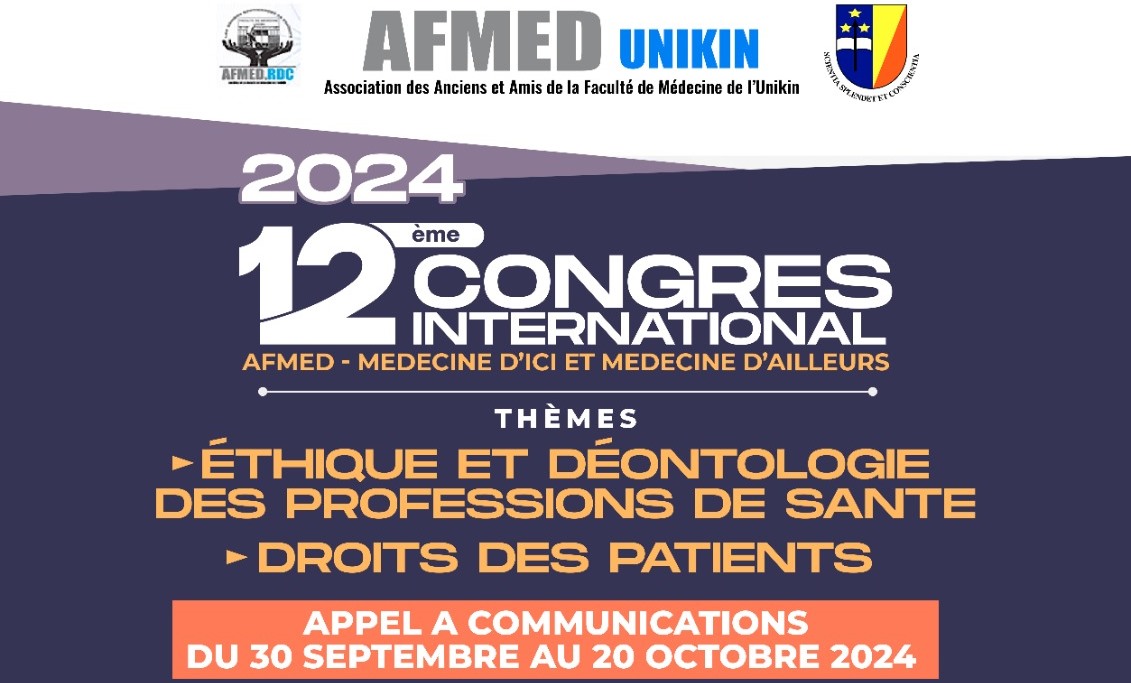62 digestive and accessory cancers seen in 1 year at the Marie-Yvette Clinic in Kinshasa, Democratic Republic of Congo
Tshimpi A1,2, Ndarabu Th1,2, Nsumbu J B2, Tambwe F2, Batumona B1, Monsere T1, Lungosi B1, Kengibe P1, Ngoma P1, Nko Betty1, Loleke E1, Phaka P1, Lebwaze B1, Mbendi Ch1 and Mbendi S1
1University Clinics of Kinshasa, Democratic Republic of the Congo
2Clinique Marie-Yvette, Kinshasa, Democratic Republic of the Congo
Introduction: As in the rest of the world, the prevalence of cancer is increasing in the Democratic Republic of Congo (DRC).
However, in the absence of a national cancer registry, there are no reliable figures that would allow studies to be carried out in order to improve the care of the patients concerned and to contribute to the training of young people in oncology.
Aim: The aim of this retrospective, documentary and mono-centric study was to document the cases of digestive cancers received at a center specializing in digestive pathology, the first of its kind in the DRC, since its opening in June 2015; And to analyze the frequency thereof.
Methods: All cases of digestive or ancillary cancers seen between June 2015 and May 2016 were retained. The parameters analyzed were age, sex, diagnosis.
Results: The diagnosis of digestive cancer was established in 62 patients. There were 40 men and 22 women, with a sex ratio of 1.81.
The mean age was 57.7 years; with extremes of 24 and 91 years. The distribution of cancers is shown in table no. Colorectal cancer in 20 cases out of 62, or 32%, of hepatocellular carcinoma in 12 cases, 19%, stomach cancer in 6 cases, 9.6%, stromal tumors in 5 8%, pancreatic cancer in 5 cases, 8%, cholangiocarcinoma in 3 cases, or 4.8%, hepatic metastases of non-digestive primitive in 6 cases, or 9.6%, and « others » Tumors in 4 cases, or 6.4%.
Conclusion: Digestive and ancillary cancers are a reality in the DRC. In this preliminary series, colon cancer was more common followed by hepatocellular carcinoma and stomach cancer.
The mean age of the patients was 57.7 years with a male predominance. It is urgent to organize the management of these pathologies in the DRC.
(1) The global burden of cancer 2013, Jama Oncology, 28 May 2015 (2) Congolese Minister of Public Health, Dr Félix Kabange Numbi, Awareness Day Against Cancer, 04/02/2008.
Cancer in the Democratic Republic of Congo (DRC)
Tshimpi Antoine1 and Kayembe J M2
1University Clinics of Kinshasa, Democratic Republic of the Congo
2Clinique Marie-Yvette, Democratic Republic of the Congo
In the Democratic Republic of Congo (DRC), cancer kills more than tuberculosis, AIDS and malaria combined. Its prevalence is
rising steadily as in the rest of the world. In the West, cancer, the leading cause of death, is responsible for more than half of the
deaths, even if it is declining. In 2008, nearly 44% of deaths in hospitals in the DRC were due to cancer according to the Ministry
of Health. This steady rise in prevalence concerns chronic noncommunicable diseases, among which cancer takes a large place.
Favorable factors include dietary habits, lifestyle changes, etc. In fact, cancer results from the combination of several factors, some
of which are preventable, such as smoking, alcohol abuse, exposure to infections such as AIDS, hepatitis B and C, papillomavirus
Exposure to cervical and anal cancer, abuse in the consumption of fats, lack of physical exercise, non-consumption of vegetables and
fruits. This world scourge spares no one because of age, sex, race, religion, wealth or poverty. It must be considered as a major public
health problem. The most frequent cancers in man affect the lungs, the prostate, the colon; and in the woman, the breasts, the lungs,
the colon. On the digestive level, in the DRC, the rise appears to be regular for cancers of the liver, stomach, large intestine, rectum;
Perhaps contributing to a life expectancy of the Congolese (51) among the lowest in the world, lower than the African average (56
years), very far from the French figures (78 years for men and 83 years for women). It is estimated that nearly 12.4% of the 804
million people in the African Region will develop cancer before reaching the age of 75 years. The risk increases with age, and 90% of
cancer cases will occur after the age of 40 years. If action were taken immediately, there could be an annual saving of some 100,000
lives by 2020. Indeed, two thirds of cancers are curable, provided they organize screening and diagnosis at an early stage, and to
benefit from the appropriate treatments. The absence in the DRC of a national cancer registry, statistics and a formal cancer control
program is a shortcoming that needs to be corrected quickly. We must therefore work towards a national awareness of the reality of
cancer; the commitment of the Ministry of Public Health in the fight against cancer is unavoidable. According to the WHO Regional
Director for Africa: « Governments and development partners have a shared responsibility to raise awareness to dispel prejudices and
preconceptions about cancer and to promote change in Life and behavior related to the risk factors of this disease « . There is a need for
the DRC to organize care in oncology. This implies: 1. Training of health professionals in the management of cancer; 2. Development
of structures adapted to the management of cancer; 3. Information campaigns aimed at the general public; 4. Mobilization of financial
resources; 5. Access to anti-cancer drugs, perhaps in the anti-retroviral model for HIV. In conclusion, cancer represents in DRC, an
increasingly important cost, in terms of human lives; it becomes urgent to organize its care.









